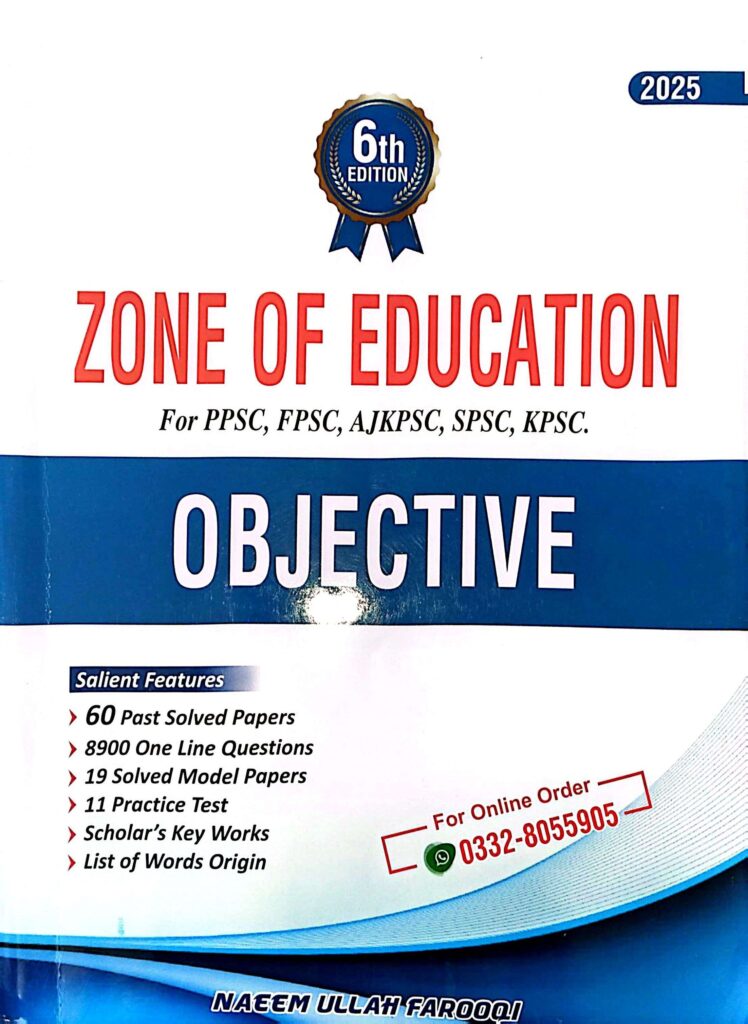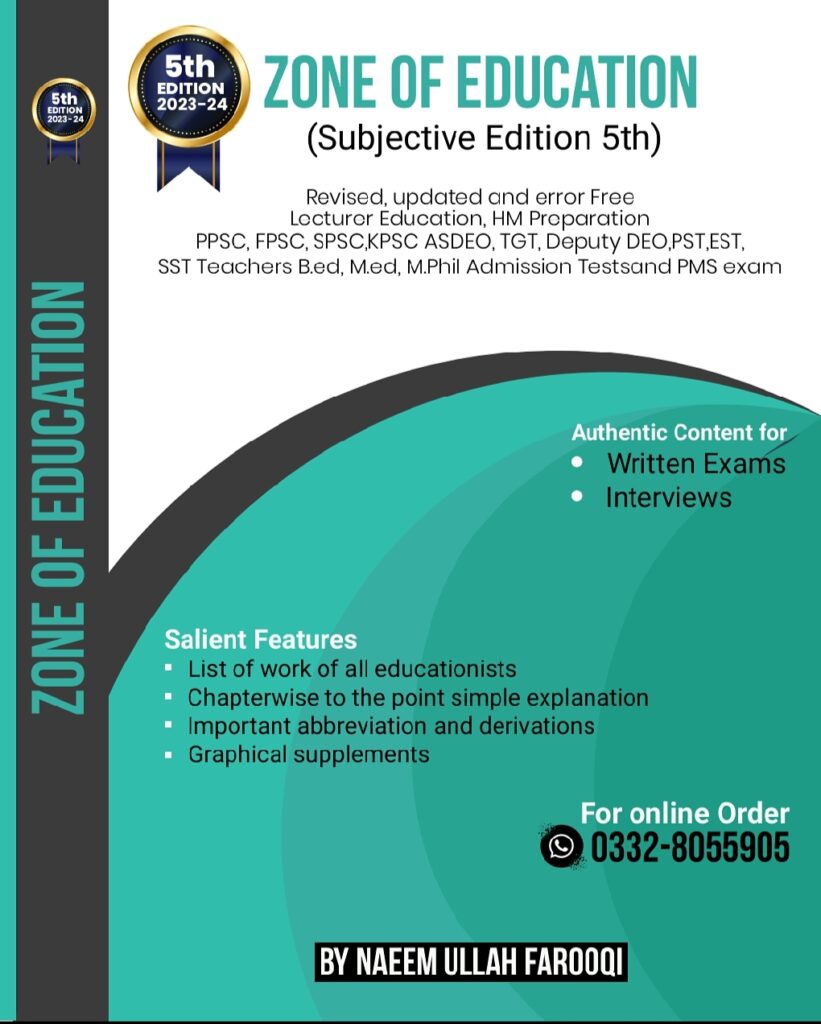Educational Planning & Management
Who share the most responsibility according to the Principles of Sharing
A. The teachers
B. The students
C. The administrators
D. All of the above
Answer» D. All of the above
discuss
136.
A democratic management should provide _______ of opportunity in the field of education
A. Freedom
B. Restriction
C. Equity
D. Equality
Answer» D. Equality
discuss
137.
Which of the following convictions are exhibited by the administrator
A. Democratic leadership is accepted as a way of life
B. Growth relies on the efforts of individuals rather than group efforts
C. The welfare of all is assured by the welfare specific member of the group
D. None of the above
Answer» A. Democratic leadership is accepted as a way of life
discuss
138.
The origin of the development of educational management as a field of study began in which country
A. United Kingdom
B. Sweden
C. Germany
D. U.S.A
Answer» D. U.S.A
discuss
139.
The development of educational management originated during the
A. Early 20th century
B. Late 20th century
C. 1800s
D. None of the above
Answer» A. Early 20th century
discuss
140.
Which of the following is the human elements of educational management
A. Children
B. Parents
C. Teachers
D. All of the above
Answer» D. All of the above
discuss
141.
Which of the following is the material resources of educational management
A. Money
B. Buildings and grounds
C. Equipments and instructional supplies
D. All of the above
Answer» D. All of the above
discuss
142.
In management process, the most interpreted word is
A. Organising
B. Delegating
C. Controlling
D. Planning
Answer» A. Organising
discuss
143.
The department(s) that an event management company will have is/are
A. Creative
B. Production
C. Client servicing
D. All of the above
Answer» D. All of the above
discuss
144.
Who said, “Management is a multiple organ that manages a business, manages a manager and manages workers and work”?
A. Harold Konntz
B. Peter Drucker
C. Kenneth O’ Donell
D. Anonymous
Answer» B. Peter Drucker
discuss
145.
Under mechanism of scientific management, scientific task setting includes
A. Time study
B. Motion study
C. Method study
D. All of the above
Answer» D. All of the above
discuss
146.
Management is a creative and______ process
A. Systematic
B. Continuous
C. Long
D. None of the above
Answer» C. Long
discuss
147.
Management as a discipline is the function of
A. Science
B. Art
C. Creativity
D. All of the above
Answer» A. Science
discuss
148.
The word____ denotes a function, a task, a discipline
A. Management
B. Leadership
C. Motivation
D. None of the above
Answer» B. Leadership
discuss
149.
Being proactive in managing a situation would mean
A. Preparing yourself in an action manner
B. Preparing in the present for the upcoming future events to tackle them in a better way
C. Keep yourself up-to-date with future happenings
D. Actively participating in current activities
Answer» B. Preparing in the present for the upcoming future events to tackle them in a better way
discuss
150.
_______ is one who knows in depth one particular branch or department
A. Bureaucrats
B. Administrator
C. Controller
D. Technocrats
Answer» D. Technocrats
discuss
151.
The internal environment factor(s) that influence management is/are
A. Labor
B. Machines
C. Place
D. All of the above
Answer» D. All of the above
discuss
152.
The heart of the administration is the__________
A. Directing
B. Organising
C. Controlling
D. Cooperating
Answer» A. Directing
discuss
153.
Who defines the educational management is the “Theory and practice of the organisation and administration of existing educational establishments and systems”
A. Koopman
B. Paul Munroe
C. G. Terry Page and J.B. Thomas
D. Tony Bush
Answer» C. G. Terry Page and J.B. Thomas
discuss
154.
Which of the following is not a principle of management?
A. Principle of Justice
B. Principle of Participation
C. Principle of Leadership
D. Principle of Assessment
Answer» D. Principle of Assessment
discuss
155.
_______ makes no attempt to install a uniform pattern or a national system of education
A. Decentralisation
B. Bureaucracy
C. Centralisation
D. Technocracy
Answer» A. Decentralisation
discuss
156.
A Bureaucrats by_______ of his training is considered to be versed with rules and regulation
A. Commitment
B. Discipline
C. Limitation
D. Virtue
Answer» D. Virtue
discuss
157.
_______ is a motivating force in management
A. Dominance
B. Leading
C. Control
D. System
Answer» B. Leading
discuss
158.
_______ is the process of ensuring that the policies and techniques established for achieving objectives of an organisation are properly and successfully followed
A. Reporting
B. Evaluation
C. Supervising
D. Planning
Answer» C. Supervising
discuss
159.
Organisation begins when people combine their_______ for a given purpose
A. Knowledge
B. Skills
C. Power
D. Efforts
Answer» D. Efforts
discuss
160.
________ is deciding in advance what to do, how to do it, when to do it and who is to do it, it involves anticipating the future and consciously choosing the future course of action
A. Directing
B. Planning
C. Organising
D. Coordinating
Answer» B. Planning
discuss
Chapter: Financial Management
161.
The objective of financial management is –
A. To ensure optimum utilization of funds
B. To ensure human capital development
C. To ensure safety on investment
D. All the above
Answer» D. All the above
discuss
162.
Which of the following is not a source of income of educational institutions?
A. Land grants and endowments
B. Government grants
C. Loan from banks
D. Student fees
Answer» C. Loan from banks
discuss
163.
Financial management is concernrd with –
A. profit and loss
B. procurement and utilization of funds
C. loan from banks
D. sound investment
Answer» B. procurement and utilization of funds
discuss
164.
Educational finance aims at seeing that the money for education is spent most –
A. judiciously & productively
B. appropriately & adequately
C. effectively & efficiently
D. none of the above
Answer» A. judiciously & productively
discuss
165.
The main source of income of educational institutions is –
A. Student fees
B. Gifts & donations
C. Government funds
D. All the above
Answer» C. Government funds
discuss
166.
Public funds include money recieved from –
A. central government
B. state government
C. local government
D. All the above
Answer» D. All the above
discuss
167.
In ancient and medieval India, education was mainly financed by –
A. Endowments
B. Land grants
C. Donations
D. Gifts & Bequests
Answer» A. Endowments
discuss
JOIN ZONE OF EDUCATIONPK!
Discover the most comprehensive and reliable pedagogy resources in Pakistan, curated for competitive exam success. Our content covers all competitive exam MCQs, including PPSC, FPSC, AJKPSC, SPSC, and more. Designed to empower learners with top-notch material and insights, trust us for your preparation journey!


